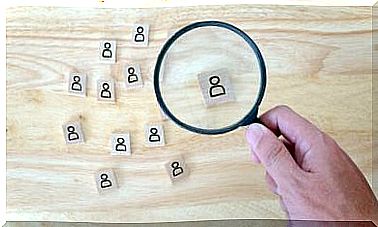5 Myths And Misconceptions About Forgiveness

Forgiveness is a powerful weapon that allows us to live in peace with others and, above all, with ourselves. Despite this, many people fail to understand how liberating it is to be able to forgive others.
However, forgiveness can be a double-edged sword. It is, in fact, a very common strategy to manipulate others and force them to do what the manipulator wants. For this reason, it is important to understand forgiveness well and to learn to set boundaries to protect yourself from the abuse of others.
On the other hand, our culture imposes on us behavioral models that we now follow automatically and, often, without realizing what we are doing or why we do it. We simply react as expected, without considering alternatives, nurturing and reinforcing the stereotypes that bother us so much.
In our article today we will look at the most common myths and misconceptions about forgiveness. Reflecting on these myths will help you to be able to forgive more sincerely and be more aware of what you are doing and why.

False Myths About Forgiveness
1. You have to overcome the pain before you can forgive
Many people believe that it is necessary to overcome pain and anger before knowing how to forgive, as if they should feel better first and then be able to grant their forgiveness. However, in reality, it is quite the opposite.
Forgiveness is a choice that must be made. If we wait for anger to pass, anger will make everything more and more difficult. It is “hot” that you have to decide. In this way, the state of tension and anger will pass more quickly, because you will prevent anger from taking hold of you.
2. One must always forgive, even when one is not predisposed to do so
This is an idea that is often planted in the minds of children and that many people carry with them even into adulthood. However, forgiveness is not a choice that can be imposed, but a free and conscious choice, even if it takes a little longer.
If you forgive only with words, because that is what you have to do (and, moreover, you are convinced of it), but do not forgive with the heart, anger and anger will turn into negativity that will break out in another way. Take your time and freely choose whether you want to forgive or not.
3. One must not forgive the same wrong over and over
We are all human beings and that involves making mistakes and we make them more than once. We are the only living beings who stumble twice on the same stone (or so they say).
Learning from mistakes is not easy, especially when you are not fully aware of your mistake. After all, not everyone sees the world in the same way and there are many factors that affect the behavior of each of us.
There are things that we can easily forgive once, but it can be very difficult to forgive a second time. However, not all wrongs are equally serious and their impact depends on the person who commits them. For this reason, each problem must be considered individually and not generalized.

4. You cannot forgive someone who has not repented of their actions
Again, it’s just the opposite. If the other person does not regret what they have done, the full weight of anger and anger falls on you, and it hurts even more. Nevertheless, by forgiving those who have hurt you, you will be able to get rid of that burden.
Many people use this strategy to harm others, because they understand the power they have when they don’t repent of their actions. Nevertheless, by forgiving them, you will deprive them of their weapon and take away from them a precious tool for their own purposes.
5. When you forgive, you value the actions of others
Many people think that forgiveness is a way to accept what another person said or did. A way to approve one’s own wrong or unlawful behaviors.
It’s not absolutely true; when you forgive, you tell the other that he does not have enough power to harm you, that you are above the situation. In this regard, forgiveness allows you to rise above the psychological manipulation that others can use on you.









